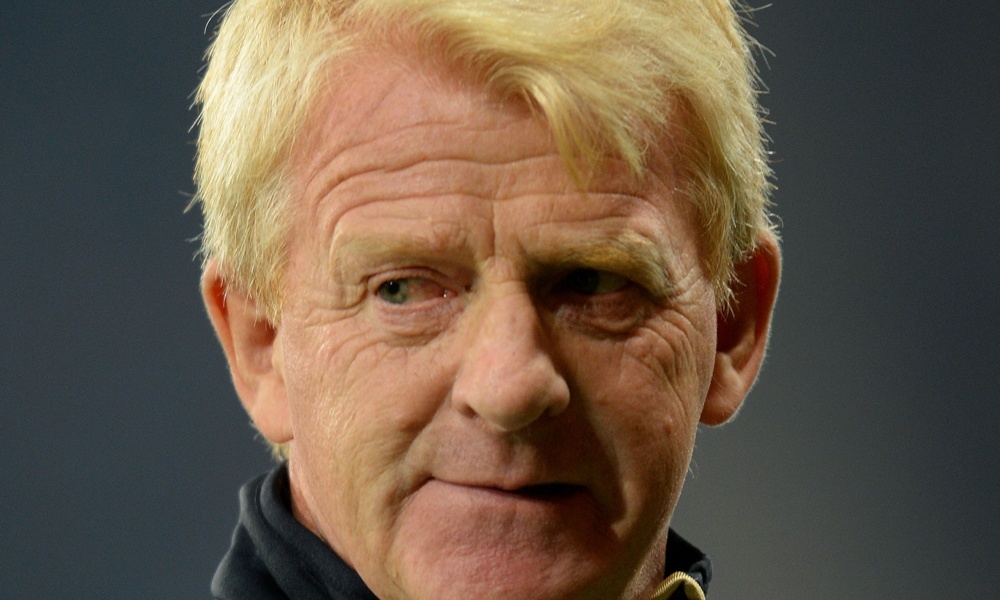February 23, 2014. The date on the face of it means very little. (Unless you are Dakota Fanning, Kelly MacDonald or even Gareth Barry, in which case it’s your birthday.)
One thing’s for certain though, you can be damned sure that Gordon Strachan has it marked out in his diary.
Progress has been the watchword since Strachan took over in January this year and, around 10 months on, no-one can deny that Scotland look a much better, cohesive unit, and look like a team who can actually win football matches.
The statistics speak for themselves: since Strachan took over from Craig Levein, Scotland have won three out of their last four competitive matches including home and away wins against Croatia and that run has been reflected in the latest Fifa rankings as the nation leapt 28 places to 35th in the world.
Results aside, many people would also be quick to point out that the renewed confidence gleaned by the much-improved performances may be more significant in helping the national side maintain a steady course on their apparent upward curve.
Indeed, even the 3-2 friendly defeat to England at Wembley while it hurt at the final whistle left many Tartan Army feeling like there were better times ahead.
But while Scotland fans can now look forward to international fixtures without the fear there perhaps was towards the end of the Levein era, at the end of the day for Scotland at least the ultimate goal has to be making the finals of a World Cup or the European Championships.
And that’s where what happens on February 23 next year comes into play.
On that day, dignitaries of all shapes and sizes will pack into the Palais des Congres Acropolis in Nice and look on as the draw for Euro 2016 is made and my how Scotland could do with Lady Luck shining down on us.
But when it comes to qualifying for their first major finals since World Cup 1998, I’d argue that Strachan’s input has already had a major effect.Retaining a place in pot four is strategically significant, and means the mountain the Scots have to climb should be a little less arduous.
Having said that, pot positions are not the be all and end all, and one only needs to look at the Euro 2008 campaign when Scotland came agonisingly close to qualifying despite being pitted in a group alongside Italy, France and Ukraine.
Let’s face it, there are NO easy games in competitive international football these days, and the gulf between the top teams and the so-called minnows is much smaller than it used to be now more so than ever.
Still though, Scotland fans should thank their lucky stars that Strachan has stopped the rot, because the chances of beating the likes of Moldova or Azerbaijan are arguably greater than facing the likes of Poland or Bulgaria two teams who are likely to be in pot four along with Scotland and have good international pedigrees.
Whoever Scotland get in the draw, at least Strachan’s men will go into their campaign with real optimism unlike the misplaced optimism many fans had at the start of Levein’s ill-fated World Cup campaign.
A change in the qualifying format means second-placed sides are set to make it to France 2016 outright, as the field in the finals will be expanded from 16 to 24 next time around.
Combine that with the fact there doesn’t seem to be much between the middle-ranked teams involved in qualifying, and you would suggest that Scotland really should be talking up their chances ahead of their Euro 2016 qualifying campaign.
It’s just such a shame that Scotland fans will have to settle for watching next summer’s feast of football, the World Cup in Brazil, from the comfort of their armchairs.
I’m writing this on the day that the World Cup play-off draw is being made, and it’s fair to say that Scotland over the piece do not deserve to be among the eight teams involved in that.
Yes, had Scotland held on to their 1-0 leads against Wales in both the home and away ties, you could argue that we would be in the play-offs.
But then again, had the capitulation at home to the Welsh at Hampden and the expected defeat away to Belgium a few days later not happened, Levein’s departure might not have been so swift in the wake of those results.
And then we’re into the realms of ifs and buts which, speaking as a proud Scot, I’d suggest the Scots have been far too reliant upon over the years.
All we can hope for now is that there are no ifs and buts in two years’ time, and that the Tartan Army can think about booking for Bordeaux or packing for Paris following a successful qualifying campaign.
